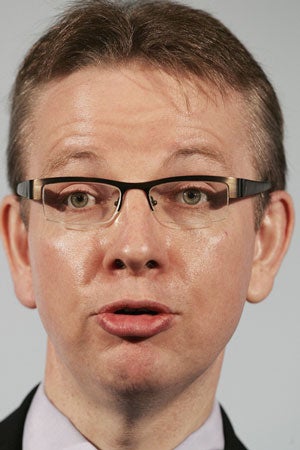Schools reject admissions lottery

Your support helps us to tell the story
From reproductive rights to climate change to Big Tech, The Independent is on the ground when the story is developing. Whether it's investigating the financials of Elon Musk's pro-Trump PAC or producing our latest documentary, 'The A Word', which shines a light on the American women fighting for reproductive rights, we know how important it is to parse out the facts from the messaging.
At such a critical moment in US history, we need reporters on the ground. Your donation allows us to keep sending journalists to speak to both sides of the story.
The Independent is trusted by Americans across the entire political spectrum. And unlike many other quality news outlets, we choose not to lock Americans out of our reporting and analysis with paywalls. We believe quality journalism should be available to everyone, paid for by those who can afford it.
Your support makes all the difference.The vast majority of secondary schools have rejected a plea to introduce a lottery system to determine admissions, headteachers' leaders revealed yesterday.
The move emerged as initial indications showed that as many as four in ten parents in some of the country's most disadvantaged areas will be told today they have failed to get their child into their first choice school.
The parents' plight is most acute in London and is expected to trigger off thousand of appeals against the decisions.
A survey of local authorities revealed that only 59 per cent of parents got their first preference this year - compared to 61 per cent last year. In Barnet, it was 63 per cent - compared with 61 per cent the previous year.
Meanwhile, headteachers' leaders revealed that "hardly any" of the 2,600 specialist schools and academies had complied with a recommendation from the chairman of their trust, Sir Cyril Taylor, to introduce lotteries in the wake of Brighton and Hove Council's decision to use the system to determine admissions at its oversubscribed schools.
Ministers also supported lotteries as an option in a tough new code on admissions aimed at stamping out the practice of middle-class parents snapping up places at the best-performing schools through buying expensive houses near to them.
However, a year after the plea, Sir Cyril has now lost his post as chairman of the trust and it is thought unlikely by senior sources at the trust that it will intervene on admissions policies again.
John Dunford, general secretary of the Association of School and College Leaders, said: “I think heads would rather avoid it if they can. I think it is seen only as a policy of last resort.
“Part of the problem is that - if you introduce it - people think you're doing it for every place whereas in practice it only covers a handful of admissions at the school after other criteria, such as siblings, are exhausted.”
Only one council has followed in the footsteps of Brighton - where parents will be told the results of the first ever lottery by letter today. Hertfordshire County Council is using a “lucky draw” system in its seven oversubscribed single-sex schools.
Last night headteachers were predicting a spate of appeals by angry parents denied a place at their first-choice schools. Last year 18 per cent of parents - just over 100,000 - failed to get their children into their top preference. In all, 93 per cent of all parents were granted a place for their child in one of the schools they had singled out for preference.
Dr Dunford predicted the majority would appeal as a result of the stress placed on parental choice by politicians. “I wish they would tone the rhetoric down because the more it becomes a fiction the more parents will be disappointed.”
Michael Gove, the Tories' schools spokesman, has promised his party will outlaw the use of lotteries .
Join our commenting forum
Join thought-provoking conversations, follow other Independent readers and see their replies
Comments